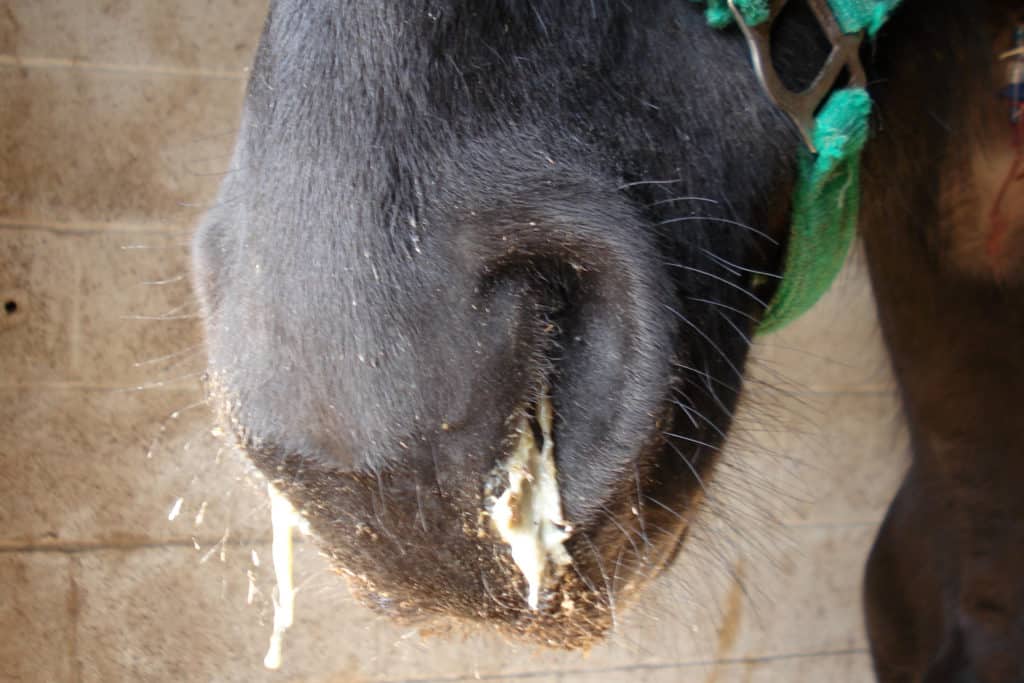
Veterinarians Now Have a Drug to Reduce Fever in Horses
The FDA recently approved dipyrone to address fever in horses with respiratory infections.

The FDA recently approved dipyrone to address fever in horses with respiratory infections.

Key takeaways included treating horses as individuals and adjusting medications and management strategies as needed.

One manufacturer organized a roundtable of English and Western sport horse practitioners to evaluate their use of bisphosphonates.

The broad-spectrum antibiotic might be a safe and viable option for treating infections, including placentitis, in late-term mares.

Veterinarians discussing the Havemeyer Workshop while at the AAEP convention covered fluid therapy, NSAID use, and more.

Intraocular gentamicin injections might be less costly and less invasive alternatives to vitrectomy in horses with early stage ERU, also known as “moon blindness.”

Researchers investigated tackling placentitis on three fronts using a combination of firocoxib, trimethoprim sulfamethoxazole, and altrenogest (a progestin used to suppress estrus).

British researchers found more success treating EGGD with misoprostol than with a combination of omeprazole and sucralfate, known to effectively treat squamous ulcers.

Blood testing provides a clearer picture of potential cobalt misuse.

As concerns over antibiotic resistance grow, equine veterinarians look for ways to treat wounds without reaching for these powerful drugs. Here are some of their options.

Navicular syndrome management changed significantly in 2014 when the U.S. Food and Drug Administration approved bisphosphonates for treatment. Sponsored by Dechra Veterinary Products.

Texas A&M researchers reviewed the current body of knowledge surrounding bisphosphonates and their use in horses. Here’s what they found.

Two leading researchers explain insulin’s effects on the body and how to manage the insulin-resistant horse.

Equine researchers recently found that calcium levels return to baseline within five days, suggesting that weekly furosemide administration in racehorses doesn’t lead to long-term calcium losses that might contribute to skeletal injuries.

Up to 93% of performance horses suffer from gastric ulcers. Is yours one of them? Here’s how to manage the condition.

It’s the most frequently diagnosed equine infectious disease in the world. Find out how researchers are working to develop better detection methods and vaccines for strangles.
Stay on top of the most recent Horse Health news with
"*" indicates required fields